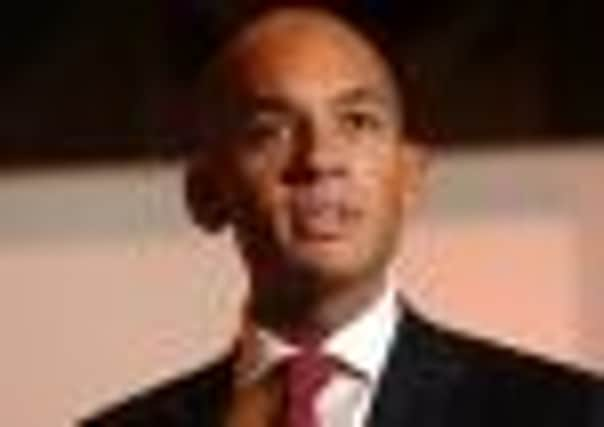Labour’s rising star puts his case for growth


He hopes they will make a judgment on what he says, rather than how old he is and where he worked.
“That’s probably the society we want to be living in,” he told the Yorkshire Post, before adding that George Osborne was the same age when he became Shadow Chancellor.
Advertisement
Hide AdAdvertisement
Hide AdIt remains to be seen whether Mr Umunna will make it to high office, but the Shadow Business Secretary is determined that the Yorkshire business community takes him seriously.
In an interview eight weeks into his new job, the Labour MP fields questions about regional development, economic credibility, the importance of values in business and how he would boost growth by backing Britain’s world-beating industries.
He spoke to this newspaper after delivering a keynote speech at the IPPR North conference in Leeds in which he called on the Government to carry out a full impact assessment to understand the impact of its cuts on the regions.
In his speech, Mr Umunna criticised the slow-moving regional growth fund and said it was “a shadow” of previous regional development funding, which was worth more than £300m a year to Yorkshire.
Advertisement
Hide AdAdvertisement
Hide AdHe believes that the key to growth is to give corporates “confidence in the destination of the UK economy” so they invest their hoarded cash, currently equivalent to 16 per cent of GDP.
Mr Umunna also wants the immediate implementation of tax breaks for small businesses, a temporary cut in VAT and a tax on bankers’ bonuses.
But why, I ask, should business leaders believe that Labour has any economic credibility, given the poor state of the public finances after 13 years of power?
“If you look at debt as a percentage of GDP when we took power in 1997 it was about 46 per cent and it reduced down to around 35 per cent around the time of the global financial crash,” he said.
Advertisement
Hide AdAdvertisement
Hide AdHe claimed the crash had its “gestation” in the financial services sector rather than Gordon Brown’s light-touch regulatory regime. To prevent a depression, he said that the Labour Government had to increase spending.
“Of course now we have to reduce our borrowing,” he said. “The question is how you do it and whether the way you do it works.
“What I’d ask your readers to reflect upon is in May 2010 unemployment was falling, growth was rising and borrowing came in £20bn lower than was forecast in the last year of the Labour Government.”
To some commentators, Mr Ummuna represents a break with the last generation who, rightly or wrongly, were blamed for the financial crisis. Is he the new face of Labour? He laughed and said: “That’s for other people to make a judgment. Do the different intakes in the Parliamentary Labour Party subscribe to the same set of values and vision for a better, fairer and more prosperous Britain? Absolutely. I wouldn’t divide us up in the way your question is inviting me to do.”
Advertisement
Hide AdAdvertisement
Hide AdWhat are his values? “I think we are mutually dependent,” he said. “I would extend that into business. That is why I talk a lot about us all working to foster the conditions for businesses that have a shared value to succeed because business and society are mutually dependent.
“A business relies on society to feed it with the masses of talent that we have in this region and of course the custom which provides a market for their goods.
“But of course society relies on business to provide jobs and the wealth and products that people need.”
He wants policies to encourage good behaviours, practices and business models that deliver both for the bottom line and society in general.
Advertisement
Hide AdAdvertisement
Hide Ad“I’m a strong believer that one feeds the other. Good business is good business,” he said.
On the question of long-term growth, he wants to champion established and emerging sectors including business services, chemicals and pharmaceuticals, insurance, IT, publishing and communications, advanced manufacturing, biotechnology and medical technology.
A missed chance for mutuals
The Shadow Business Secretary has admitted that the last Labour Government should have done more to promote the mutual model.
Chuka Umunna said the party’s ongoing policy review is looking at the owned-by-members approach that has proved so successful at companies like John Lewis, the retail giant, and in the building society movement. Mr Umunna said: “We all thought it was a missed opportunity not to remutualise Northern Rock because we need to democratise the market more so it is more responsive to people, so you have a situation where markets serve small and medium-sized businesses and people generally and not the other way around.”